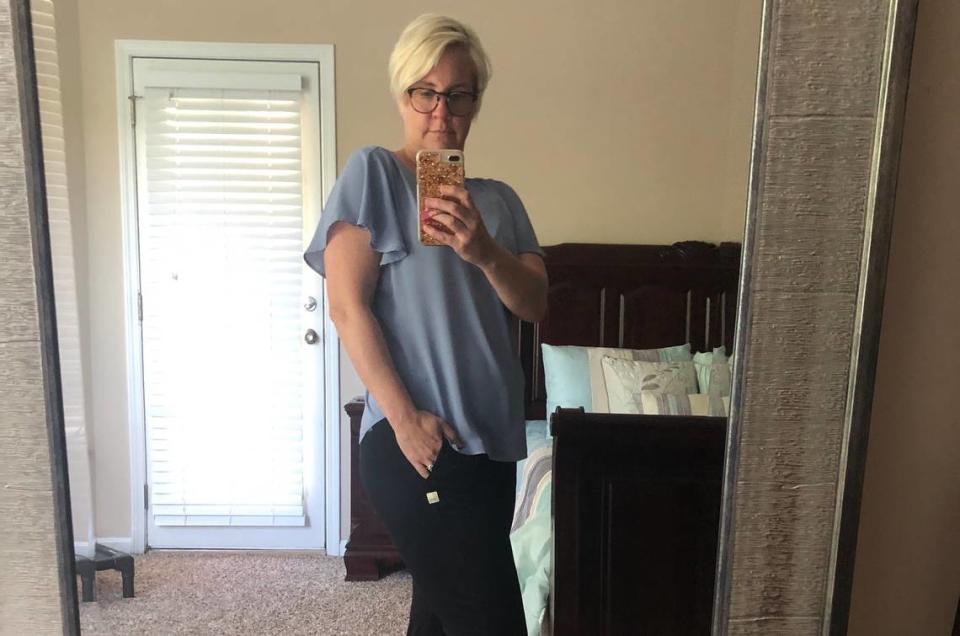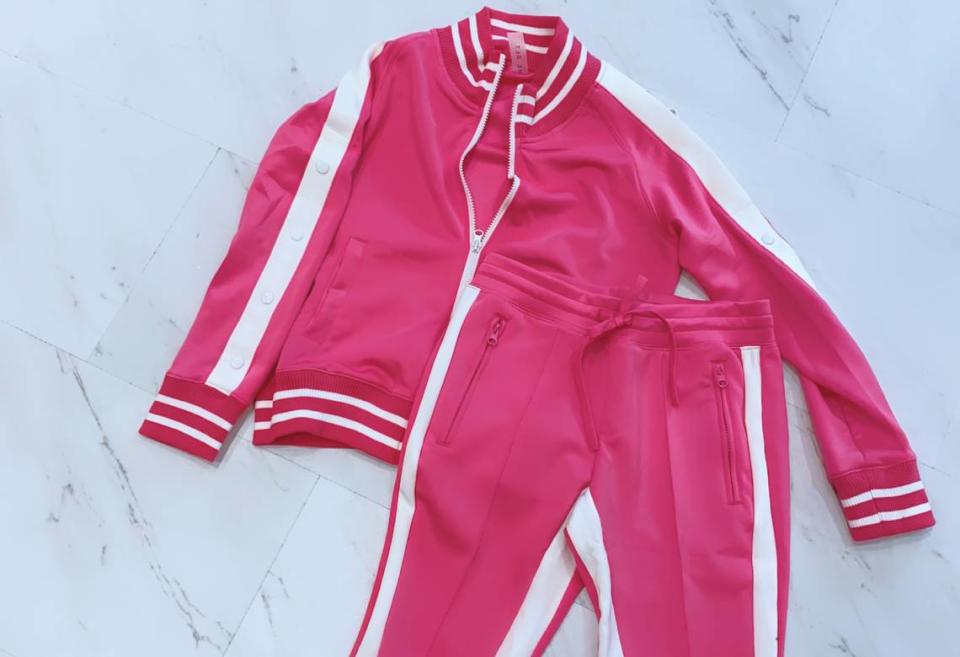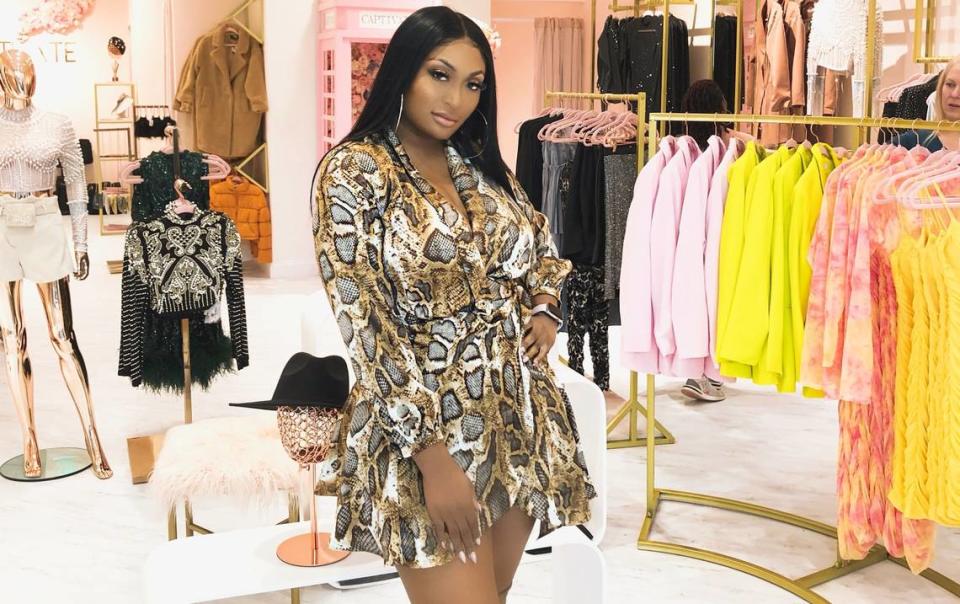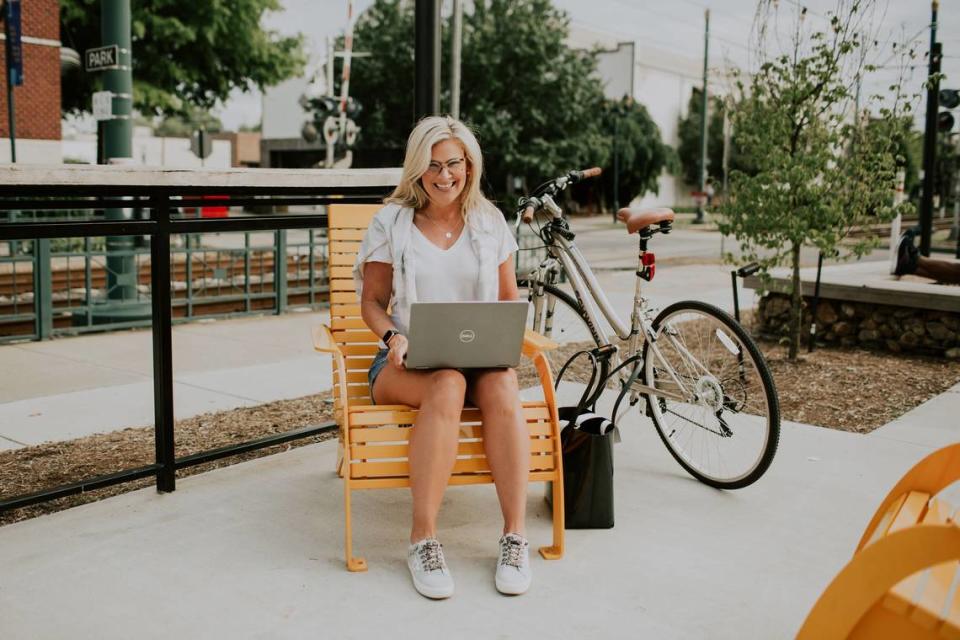We’ve ditched the ties and the heels: The COVID effect on work fashion in Charlotte
High heels? No thanks. Pants with zippers? So 2019. In the age of quarantine and remote working, comfort is king in the Queen City.
Like nearly everything in life, Charlotte fashion has been turned on its head during the COVID-19 pandemic. With Zoom calls replacing meetings, couches replacing conference rooms and Netflix replacing nights out, business and formal attire are becoming as passe as handshakes. Instead we are seeing the rise of what the Wall Street Journal dubbed the “business mullet” — formal up top, party down below.
“I’d live in my joggers if I could, and the best part is that I can wear a professional blouse up top during my Zoom calls with clients and no one is the wiser,” said Charlotte business coach, strategist, author and podcaster Jenny Melrose. “Plus I’m able to hop up and be comfortable running an errand or playing with the kids. Comfort and style for the win.”

Based on data from 80 of the top 100 retailers, Adobe Analytic found a 143% jump in pajama sales, a 13% drop in pants sales and a 12% decrease in the sale of bras this spring.
So how are these changing trends impacting local retailers? Monroe-based retail chain Belk has seen an uptick in items such as leggings, sleepwear, athletic shoes, cosmetics and home goods.
“Instead of shopping for complete head-to-toe looks, we’re seeing more focus on dressing from the waist up – a cute top and a fresh face, and our working customer looks great for her Zoom meeting,” said Nir Patel, Belk’s chief merchandising officer. “Shopping patterns are telling us that our customers want to be comfortable but stylish while they’re at home. They’re also updating or reinventing their living spaces and spending time on new activities like cooking or going outdoors.”

Retail sales shift
With clothing and accessory sales plunging a record 79% in April, according to NPR, a shift in inventory and marketing is essential for survival. The pandemic has already forced major retailers Neiman Marcus, J. Crew and JCPenney into declaring bankruptcy, although retail sales bounced back up in May as stores reopened.
“During this time of year, we normally would have seen a very large spike in dressier dresses and heels/wedges for holidays such as Easter, Mother’s Day and graduations,” said Megan Fletcher, a buyer at Charlotte boutique Ivy & Leo.
Instead, the company is shifting gears after seeing an uptick in purchases including maxi dresses, graphic tees and tie dye loungewear. “We have followed these purchasing trends and directed our marketing to have subject lines such as ‘Work From Home In Style,’ ‘Free Shipping & Cozy Clothes #winning and ‘Sunday Mood: Staycation,’” Fletcher said.
Local boutique Captivate, which primarily sells more formal attire, has seen a shift not only in buying trends but in buying methods.
“In addition to ordering more one-piece items, long dresses and tights that pair easily with flip flops and sneakers, we have also had to adjust our entire business model because of COVID-19,” said owner Charity Washington. “The shift to online buying drove us to close down our Carolina Place Mall location and reinvest that money in an online platform so our customers can access the clothing they want from the convenience of home. For those willing to venture out, our SouthPark Mall location is open and has been seen seeing a steady increase in traffic.”

When the coronavirus hit, local resident Arden McLaughlin was excited that her penchant for cozy clothes would finally win out over her need to look professional for her PR business. “No more pencil skirts and cinched dresses. No more high-waisted pants or high heeled shoes. I was free! Kinda... I still had to figure out how to look pulled together for the classes I taught throughout the (beginning of the) pandemic,” McLaughlin said.
As a small business owner herself, she wanted to support other small, local businesses during this challenging time. “I’m pretty sure Sarah and Carrie over at Girl Tribe have memorized my credit card number at this point because as I dug around for cute, comfy clothes as a great price those two kept delivering. But, between the clothes I bought there, and from other small businesses around the country, I’ve been able to keep my look true to me while also not having to button a single button in 10 weeks.”

Though COVID-19 may have accelerated its adoption, the comfort trend is not something new. In a 2019 study, the Society of Human Resource Management found that the percentage of U.S. companies allowing employees to dress casually jumped from 32% to 50% in just five years.
“We’ve shifted our buying to fill into these trending areas and will keep listening to what our customers want as their circumstances and needs continue to evolve,” Patel said.

